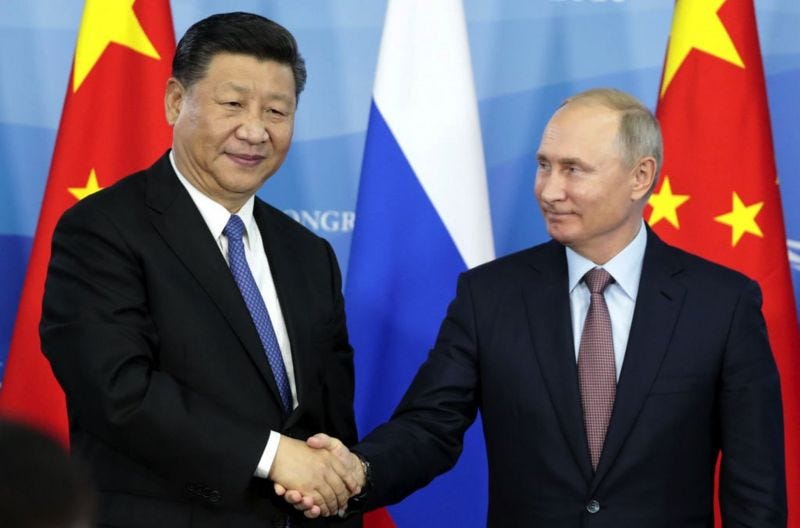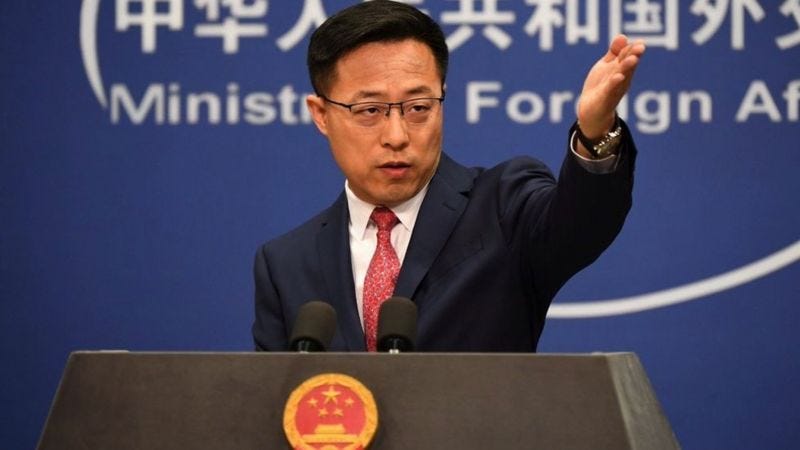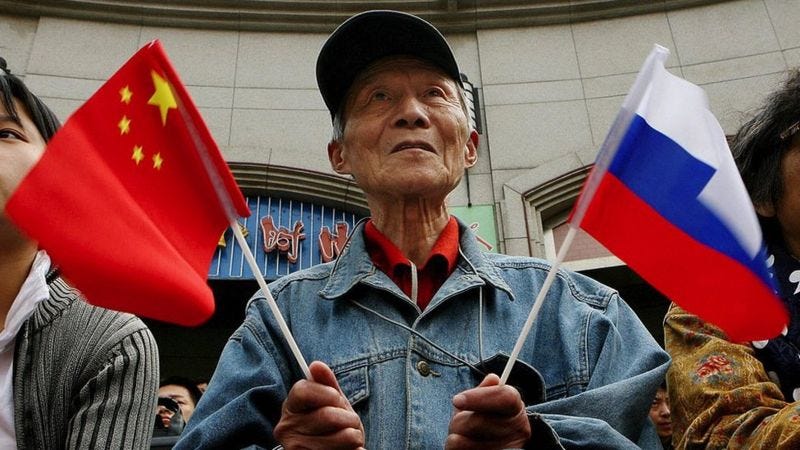Friendship with limits: how Russian-Chinese relations cooled in the course of Ukraine war
Nearly a year after Russia started its war against Ukraine, there are signs that China might be reconsidering the “friendship with no limits” concept.
Olga Ivshina, BBC News Russian and Howard Zhang, BBC News Chinese.
Nearly a year after Russia started its war against Ukraine, there are signs that China might be reconsidering the “friendship with no limits” concept, which was famously unveiled days before the full-scale invasion. Shocked by Putin’s failures in Ukraine and faced with its own problems, Beijing is now trying to limit the negative impact of Russia’s actions and mend its relationship with the West.
A mere 20 days before Russia launched a full-scale invasion of Ukraine, in early February last year, President Vladimir Putin met with Chinese leader Xi Jinping. In this historic encounter the leaders spoke about “limitless friendship” and “no forbidden zones in cooperation."
Now, a leading British newspaper, the Financial Times, has revealed a claim by its sources that the two leaders discussed Ukraine in that meeting and President Putin "did not rule out taking any measures" if Russia came under attack.
More importantly, he apparently failed to mention plans for a full-scale invasion to President Xi.
Beijing’s careful balance
While there is no definitive evidence that Xi had no idea about Russia’s plans for invasion, the fact that China abstained from voting in the UN to condemn Moscow’s actions in March, rather than vote against such condemnation, shows that Beijing was hedging its bets from the very start.
Early in the war, some people in China showed enthusiasm for Russia’s military actions and many shared a translated video of President Putin’s speech announcing the start of the “special military operation”, Moscow’s term for the war. But officially, Beijing maintained strategic ambiguity.
On the one hand, the Chinese leadership blamed Washington for the start of the conflict, saying that it was caused by Nato’s expansion in Europe.
On the other, Beijing has not been in any rush to give meaningful assistance to Moscow.
Another leading Western newspaper, the Washington Post, claims that Russia has repeatedly asked China for support, both financial and technological.
The paper reported that while Xi Jinping was not opposed to finding ways of “mutually beneficial cooperation with Moscow”, in reality all negotiations were “tense”. According to the Washington Post’s source, China “understands Russia's predicament, but cannot ignore its own situation.”
One-way street
The only time the two countries’ leaders met since the start of the war was in September, at an international forum in the Uzbek city of Samarkand, against the backdrop of the Ukrainian counteroffensive, eventually bringing de-occupation of several regions of Ukraine which Russia had annexed weeks earlier.

After the meeting, President Putin said he highly appreciated the "balanced position of Chinese friends" on the war in Ukraine.
President Xi Jinping expressed China’s readiness "together with Russia, take on the role of great powers and play a leadership role to bring stability and positive energy to the world."
Yet, behind the mutual back-patting for the cameras, there was a complicated reality. The war in Ukraine created a number of problems for China which could not be easily solved or sugar-coated.
The cost of living crisis caused in part by the energy war Russia waged on Europe has meant that European consumers have had much less cash to spend on Chinese goods.
China’s refusal to outright condemn Russian aggression in Ukraine strained its relations with the West. And it is the United States and the EU who remain China’s biggest trade partners.
There has been no new Chinese investment into Russia in the first six months of 2022 - analysts explain this by Beijing playing safe and trying to avoid being slapped with secondary sanctions by the US.
A Russian China expert Leonid Kovacic agrees that the “no limit friendship” statement has not been reflected in actual steps. “It would not be in China’s interests to complicate relations with the entire collective West at once.”

Considering that China's relations with the United States are likely to remain strained in the long term, says the expert, “it is important for Beijing not to aggravate relations with at least the European Union."
China may have initially underestimated how sensitive the issue of the war would get for the EU and how involved Europe would become in helping Ukraine, financially and militarily.
"That’s why now China is trying to smooth things over, at least at the level of rhetoric," adds Kovacic.
The war in Ukraine has also influenced China's handling of Taiwan, which Beijing considers a breakaway province. Tensions in the region have steadily risen in recent months, with China conducting one of the largest sea and air exercises around Taiwan in December.
At the beginning of the Russian war in Ukraine, many analysts worried that China would decide to take active steps against Taiwan. But now some analysts believe that China, seeing the unified reaction of the West (and in particular the EU) to Russia's invasion of Ukraine, will not dare to do so.
Change of guard… and of policy?
Appointed at the end of last year, China’s Foreign Minister Qin Gang spoke with his Russian counterpart Sergey Lavrov on January 9. Official readout from the conversation, which took place “at the request of Moscow”, states that “China-Russia relations are based on non-alliance, non-confrontation and non-aggression towards third parties.”
This is a far cry from last February’s “friendship with no limits” statement from Putin and Xi and even from September summit words about “two great powers”.
Qin’s appointment was followed by the removal of the Foreign Ministry spokesman Zhao Lijian, who’s been in his post for the past three years. Zhao had been compared to Maria Zakharova, the official representative of the Russian Ministry of Foreign Affairs, famous for her scepticism towards the West and harsh rhetoric. Zhao was nicknamed “wolf warrior” for his sharp tongue and combative style, defending China’s policies and criticising its rivals.
Some analysts say that Zhao’s removal from a high profile Foreign Ministry post to a more obscure position is mere window dressing, whilst others say it is an important tactical tweak China has made to ease friction with other countries.
Improving relations is key as China is trying to restore business confidence by abandoning its controversial “zero covid” policy and toning down rhetoric about “common prosperity” and social equality.
Pro-government political analysts say off the record that the Chinese establishment is disappointed in Moscow and its geopolitical miscalculation.
One sign of this happening was Xi Jinping’s indirect criticism of Vladimir Putin in November last year, when he, in a joint statement with German Chancellor Olaf Scholz, called "the use or threat of use of nuclear weapons" unacceptable.
The FT quoted one Chinese official, speaking on condition of anonymity: "Putin is crazy. The decision to invade Ukraine was made by a very small group of people. China should not just follow Russia."
While China is unlikely to switch its public rhetoric sharply to an anti-Russian stance, it will almost certainly act cautiously and pragmatically, mitigating consequences of Russia failing to achieve its objectives in Ukraine and causing a major international upheaval in the process.
Read this story in Russian here.
Translated and edited by Kateryna Khinkulova.
Pavel Fedenko contributed to this story.






